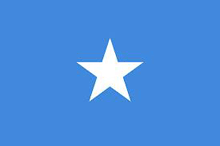
Building Trust in AI through Justice


Array
(
[thumbnail] => https://s42831.pcdn.co/wp-content/uploads/2022/09/hero-placeholder-150x150.png
[thumbnail-width] => 150
[thumbnail-height] => 150
[medium] => https://s42831.pcdn.co/wp-content/uploads/2022/09/hero-placeholder-300x129.png
[medium-width] => 300
[medium-height] => 129
[medium_large] => https://s42831.pcdn.co/wp-content/uploads/2022/09/hero-placeholder-768x329.png
[medium_large-width] => 768
[medium_large-height] => 329
[large] => https://s42831.pcdn.co/wp-content/uploads/2022/09/hero-placeholder-1024x439.png
[large-width] => 1024
[large-height] => 439
[1536x1536] => https://s42831.pcdn.co/wp-content/uploads/2022/09/hero-placeholder.png
[1536x1536-width] => 1400
[1536x1536-height] => 600
[2048x2048] => https://s42831.pcdn.co/wp-content/uploads/2022/09/hero-placeholder.png
[2048x2048-width] => 1400
[2048x2048-height] => 600
[gform-image-choice-sm] => https://s42831.pcdn.co/wp-content/uploads/2022/09/hero-placeholder.png
[gform-image-choice-sm-width] => 300
[gform-image-choice-sm-height] => 129
[gform-image-choice-md] => https://s42831.pcdn.co/wp-content/uploads/2022/09/hero-placeholder.png
[gform-image-choice-md-width] => 400
[gform-image-choice-md-height] => 171
[gform-image-choice-lg] => https://s42831.pcdn.co/wp-content/uploads/2022/09/hero-placeholder.png
[gform-image-choice-lg-width] => 600
[gform-image-choice-lg-height] => 257
)

Over the course of the next month, CIC is looking at the Somali New Deal Compact and discussing how its development and implementation have impacted its effectiveness as a peacebuilding framework. This post is third in a series. The first was on the Somali New Deal Compact’s implementation to date and the second was on divergent meanings of ownership.
In fragile state environments, there is frequent tension between the need for state actors to make deals in order to build political confidence and donors’ need to account for expenditures and show tangible results from their investments. This tension is particularly acute in Somalia, where the Federal Government of Somalia (FGS) maintains a fragile grip on power and holds limited influence over much of the country. How this balance is struck is has major implications for the effectiveness of any partnership between Somalia and its international partners.
Last month, CIC released a report that looked at this tension in the context of the drafting and implementation of Somalia’s New Deal Compact. In order for the FGS to establish credibility as a national government, it needs to be able to demonstrate it can guide the distribution of resources within the country. At the moment, there are no formal institutions strong enough to govern the rules of the game in Somalia and, without first building trust, such intuitions will be unable to emerge. Therefore, if the international community aims to support the development of the FGS into an entity capable of asserting influence over a federal state, the FSG will require enough flexibility to direct resources as necessary to make deals within Somalia’s shifting political landscape. Resources can serve as a significant motivating to bring actors to the table.
During its development, the FGS was largely supportive of the Compact, because it believed its implementation would result in a surge of on-budget economic assistance. FGS hopes that the pledged €1.8 billion would quickly be dispensed proved to be unrealistic, and unmet expectations resulted in significant skepticism of the New Deal among key Somali stakeholders. At the Brussels conference, where the Somali New Deal Compact was signed, the FGS and donors agreed that the Somalia Development and Reconstruction Facility (SDRF) would serve as a common fund through which the FGS would increasingly be able to direct the distribution of resources to the periphery. The FGS understands that, without a sufficiently resourced SDRF, there is little reason for Somali actors to engage in negotiations over the priorities in the Compact. Without that political process, it will be impossible for the Compact to secure the sort of broad based buy-in the international community hopes to see.
On the other hand, Somalia’s international partners need to be able to account for how their economic assistance is used and to demonstrate results to their domestic constituencies. If they are unable to do so, donor governments may not be able to maintain public support for their assistance, particularly if that assistance is transferred to controversial third parties or used in ways that could be construed to be corrupt. For this reason, donors have traditionally required a degree of predictability and accountability that may not be conducive to supporting a robust Somali political process. Some donors also worry that, by selecting which Somali parties are able to dictate the distribution of resources, they may actually be shortcutting the very process they hope to support.
What is clear is that, while accountability is vital for both parties, international actors must display a greater appetite for risk if they truly intend to change the relationship between Somalia and its donor partners in the ways outlined in the New Deal Compact. Several donors have shown this sort of increased risk tolerance, most notably is Norway through the Special Financing Facility (SFF) and the World Bank through its Multi-Donor Trust Fund (MDTF). Both are designed to deliver on-budget support to the FGS and aim to build Somali ownership of development priorities.
This November, there will be a follow-up conference in Copenhagen to review progress on New Deal implementation. This will provide an important opportunity for the FGS to present a more detailed set of priorities and to explain how it will manage the distribution of resources to the regions before there is a final constitution in place in 2016. Hopefully this will also highlight for donors the sort of unresolved political issues that remain between Mogadishu and the regions that must be resolved over the next two years. Unless the international community is able to provide the space and resources needed to address outstanding political issues and Mogadishu is sufficiently accountable to its donors, it will be impossible to establish the kind of relationship both parties believe is necessary. On the other hand, if this balance can be struck, the New Deal framework may ultimately be able to gain the broad level of support and buy-in that is so greatly needed.


Subscribe to our newsletter and receive regular updates on our latest events, analysis, and resources.
"*" indicates required fields